HOMETOWN HEROES Grocers Supply Company salutes its people Hometown Heroes competing in country’s ‘toughest retail grocery market’
by Mary Margaret Stewart / staff writer
People. Grocers Supply Company is a wholesaler that serves independent retailers. But when stripped down, the most important part of this 90-year family business is the people. And GSC’s people are quick to share that.
Eric Winn, president of retail independents at C&S Wholesale Grocers, has been with the company for over 16 years. And the two things he loves most about his job are the “opportunities to collaborate with and provide great service to our customers…[and] the tremendous opportunity to lead our great people and help them succeed.”
“We have great people who want to do what is best for our customers,” Winn added. “It is no accident that C&S has made ‘braggingly happy customers’ a cornerstone of its philosophy and culture for 102 years and counting. When we added GSC to the C&S family in 2015, both cultures had that core element, so it was a great fit.”
And other than having great people who want to best serve customers, Winn said GSC has found success through an “outstanding group of customers who have found innovative ways to win in a highly competitive marketplace.”
Bob Morton, director of retail sales for Grocers Supply, has been with the company nearly 28 years. He also said the customers, vendor partners and his peers alike are incredible.

“I’ve been fortunate to work with and call on some of the greatest people there are,” Morton said. “That’s my favorite part, is working with all of the great people that I’ve been able to interact with over the years.”
Morton said that GSC has always been committed to excellence in serving the independent grocer. The wholesaler is flexible when needed, which he added is its greatest asset.

“I oversee all the sales and service sales teams…I’m responsible for not only sales, but customer service as far as keeping the customers happy,” Morton said. “The sales team is the main liaison between Grocers Supply and the customer.
“Our customer service is the best in the industry. Our customerfacing team members are dedicated to helping the customer.
“And it’s not just…customer service. It’s our merchandising, team drivers, retail services – everyone with Grocers Supply that interacts with customers has the same goal. And that’s to take care of our customers and help them with all of their needs.”
Morton can attest to people being at the core of Grocers Supply since the beginning. He worked closely with one of the former owners, Milton Levit, who he considers a mentor.
“His dedication to the customer was a great mentorship for me, just seeing how he cared so much…he once told me – he said, ‘Bob, if you take care of the customer, sales will take care of themselves,’” Morton said.
“And that’s really what I base my whole career on is taking care of the customer, knowing that as long as I can take care of the customer, that the sales will follow.”
This philosophy of taking care of your people extended into COVID times, too. While many challenges have arisen from the pandemic, Morton said the priority for GSC has been taking care and precaution.
“No. 1 is keeping our frontline team members safe,” he said. “As an essential business…everybody that had to come to work every day was working in a highrisk environment, and their performance has been exemplary.”
And the GSC retail partners have been priority, too –the “Hometown Heroes” in Texas.
Message from the president
In 2020, grocery retailers and in particular independent grocery retailers were truly frontline heroes. They never shut down during the pandemic and instead found new ways to serve their communities. The independent retailers were even more pillars of their communities during the pandemic than pre-pandemic.
I want to say a huge thank you to our retailers for the difficult but important roles they have played for our region and our country during this pandemic. An industry that could be taken for granted was put squarely in the middle of the map and they met the challenge. I am proud to know and serve those retailers.
“We operate in the toughest retail grocery market in the country, and our customers are in a dogfight every day,” Morton said. “They are continuously servicing their communities. There have been a lot of retailers that have gone above and beyond, whether it’s special scheduling for senior citizens or high-risk consumers. They continue to take care of their needs throughout this whole pandemic.
“And just like at Grocers Supply, their employees are essential, and without them, we wouldn’t be able to get through this. Just being on the frontlines every day, our customers have done a tremendous job of serving their communities.
“Again, it’s just all about the people. And I can’t stress that enough. Both Grocers Supply employees, our customers and our vendors – together is the only way.”
Chris Stanley, VP of distribution operations for the Southwest, reiterates this notion of togetherness, saying that the service GSC provided when COVID hit was tremendous.
“I cannot be more proud of my team and how they’ve banded together to service our customers through this new world of COVID,” Stanley said.
“One of our values is ‘one team.’ And truly, when I look at our procurement, sales, transportation, warehousing – all those different
– Eric Winn, president of retail independents at C&S Wholesale Grocers, which operates Grocers Supply Company

areas banded together to do everything we possibly could for our customers to ensure they got all the product they could possibly get.
“Initially, the challenges were just the massive volume that we were shipping, and it was overnight. It’s not like the holidays. I know Thanksgiving is coming every year at the same time. We didn’t know COVID was coming.
“Our teams worked an incredible number of hours. They came in on their days off to help out, and they did everything they could to band together to help service our customers…right when it happened.”
And Stanley sees great opportunity to continue to grow in the marketplace.
“We have an excellent leadership team in place, and I think that we’ve got great relationships with our customers,” Stanley said. “It’s just going to be a matter of working closer with them, to see how we can offer them what they need, and then be able to provide that and deliver it.”
Accomplishments, sales and metrics aside, the only thing that Stanley wants people to understand is “what our people did.”
OFWHOLESALERSOUTHWEST2020 THEYEAR
“A building is a multimillion-dollar piece of steel and concrete, and it’s completely useless without the people that we have here,” he said.
“And what they went through…they had a ton of challenges that they figured out how to get around and work through to enable them to come into work and ship the volume that we shipped over that time.
“I am proud and impressed of what our people did to step up and really perform admirably.”
DECEMBER 2020 • THE SHELBY REPORT OF THE SOUTHWEST 15
Bob Morton
Eric Winn
HOMETOWN HEROES
Arlan’s Market embraces neighborhood approach
Expands to areas where grocery stores are needed
 by Mary Margaret Stewart / staff writer
by Mary Margaret Stewart / staff writer
Ames Arlan started sacking groceries at age 16, where he fell in love with the business. He knew for some time he wanted to own a grocery store. Today, he owns and operates several Arlan’s Market locations in Texas with his son, Nick, VP and general manager.

“He will take over for me someday,” Arlan said. “Hopefully not too soon, but we hope to keep the business in the family and going for years to come for future generations.”
Arlan’s will have been in business for 30 years come February.


In January 1991, Arlan purchased his first store, a location that was on the brink of shutting down. Shortly after buying it, the Arlan family moved to the same neighborhood where it was located, which worked well.
“We were able to have my wife involved…she handles a lot of stuff that have to do with insurance and things like that,” he said.
“My daughter worked for a while in high school, but she was like, ‘Dad, I think I want to be a school teacher,’ and I understand. But her husband, my son-in-law, he started four or five years ago as a store manager and management. And now, he’s our merchandiser for the company.
“My brother was working for us for a few years, and he just retired. My sister-in-law works at one of the stores.”
Nick Arlan was 10 years old when his dad bought the store, where
he eventually began to hang out.
“It was the type of neighborhood I could ride my bike around – I could ride my bike to the store,” he said. “During the summers, I would help out in the bakery, as far as wrapping bread and breaking out the dough and the cookies for the next day – doing stuff like that.
“I became a sacker and worked my way up through that. Then, when I was about 17 or 18, I became an assistant manager in the Please see page 18
DECEMBER 2020 • THE SHELBY REPORT OF THE SOUTHWEST 16
Ames Arlan and son Nick Arlan

HOMETOWN HEROES
From
page
evenings and just kind of stuck with it.
“It was a family business, so it was always part of the family.” And while the elder Arlan acknowledges that it’s nice to have his family involved, the store also has “a lot of people that have been with us a long time that we feel like are all part of the family,” he said.

“We build relationships with the customers,” his son added. “We hire from the neighborhood, especially the hourly employees. A lot of times, it’s the teenagers working on the weekends…they stay with us from high school, and they go off to college, and they come back for Christmas break, and they’re working with us again. You get to know their families.”
And Ames Arlan recalled a time when the associates and customers alike gave back, without question or anything in return.

“When Hurricane Harvey hit [in 2018], we had every store around us stay closed for days. But I called Nick. I knew my street was flooded, and Nick has a house about three or four blocks away,” he said. “I told him I would meet him at the end of the street, and we’re going to get that store open, no matter what.
“I waded down, got in his truck, and we got there. We started just asking for volunteer help to come in. And we ended up selling everything to the bare walls because we couldn’t get really any inventory for a few days, but we are the only grocery store around.”
Nick Arlan added, “During those times…we even had people that hadn’t worked with us in years – they’d gone on and started their own careers, and they just showed up just ready to work to help us during those times. One particular person brought in his new wife and put her to work, too. They’re engineers now, but they were still there to help us.”
“Our first opportunity to expand was two stores that were going to be foreclosed on. They weren’t making any money, and they had not had any type of upkeep,” Ames Arlan said.



John Smith (from left), son-in-law of Ames Arlan, stands with Nick and Ames Arlan
Part of the dedication from communities in which they serve comes from Arlan’s expanding to areas where grocery stores are needed.


DECEMBER 2020 • THE SHELBY REPORT OF THE SOUTHWEST 18
GROCERS SUPPLY CO. Congratulations on being named the 2020 Southwest Wholesaler of the Year. Master Distributor of Mexican Products (956)928-1234 www.multimexicanp.com Multi Mexican_SWWOY_122020.indd 1 11/10/20 4:56 PM
“We found a niche by going into some of these neighborhood stores…and we would get enough financing that we would be able to remodel them. Sometimes they hadn’t been remodeled in 25 or 30 years. Upgrade them and make it something that the neighborhood again was proud of…proud to be able to go in and shop to buy their produce and to see their neighbors. 16
Please see page 20

HOMETOWN HEROES
From page 18
“We always try to make that extra effort. When we know the customers really need a store to be there, we did that…we’re always striving to just be a little bit better when it comes to what the neighborhood needs…no matter what it might be.”

And to this day, the first Arlan’s location in Seabrook, Texas is “still a neighborhood store for us,” said Nick Arlan, which he likened to having another family member.



My daughter goes to the elementary school that is less than a block away from the store. You can see it from the store,” he said.
His father added, “All our grandkids live in the neighborhood, right down the street from the store, so it’s very much part of our family. I’m not in any hurry to retire.
“I hope we can continue to grow. I just got two new knees, so I’m ready to go.”
DECEMBER 2020 • THE SHELBY REPORT OF THE SOUTHWEST 20
GROCERS SUPPLY CO. Congratulations


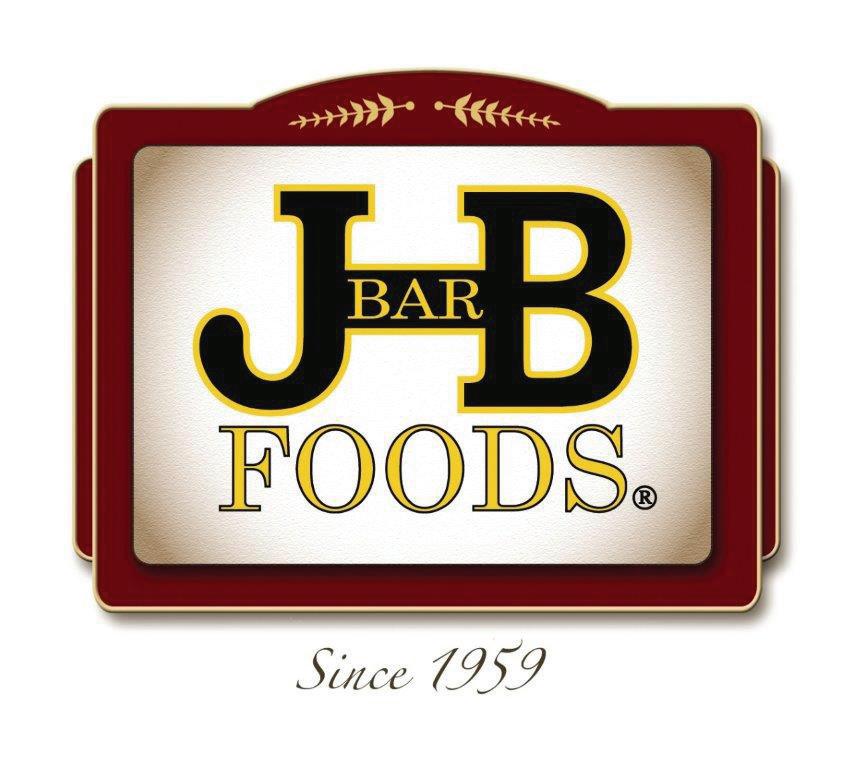
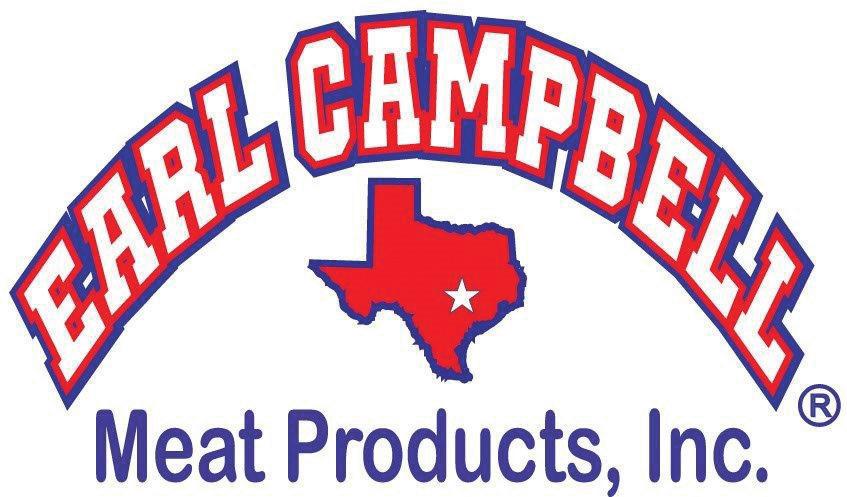
on being named 2020 Southwest Wholesaler of the Year!
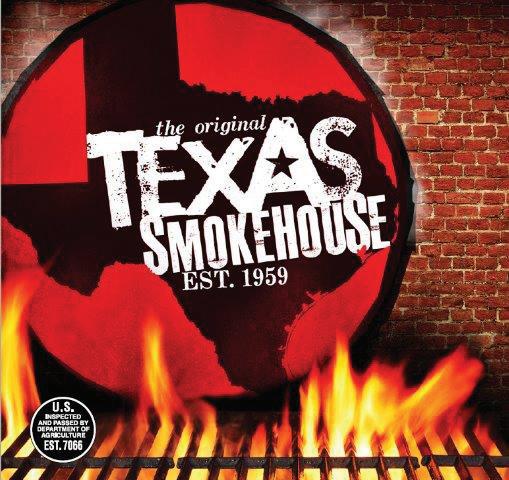
From your friends at

HOMETOWN HEROES
At Border Town, Pena views growing company as ‘by family for family’

‘Economic reality’ varies, but merchandising mix consistent
From staff reports
Amando Pena Jr. got into the grocery business working for his father. He carries on the tradition now with his own family.
“I managed my parent’s grocery stores since 1981,” Pena said. “I dreamt of owning my own group of stores one day. Despite huge obstacles and countless setbacks, I was determined to realize my dream. My wife and children made it possible.”

And if you ask what makes him most proud, Pena will tell you it is that he and his wife, Dalinda, are able to work with their three children, Liana, Amando III and Reynaldo.
“My wife and I have many years of experience, but without their intelligence and energy, we could not have grown so fast,” Pena said.
He is proud to operate five Border Town stores and also the grocery-hardware “twin store” concept that has made his company successful. It
currently operates five grocery stores, which each measure about 11,500 square feet. All five will have similar-sized hardware stores attached. The stores are in Alto Bonito, Los Villarreales, Rio Grande City, Roma and Sullivan City.

There are currently two new stores under construction with plans for two additional stores by summer 2022. Pena said they expect to grow at a pace of one store about every nine months.
Pena’s retail experience started early. His parents owned a full-service Gulf station before operating a grocery store.
He worked for his parents for 28 years before branching out on his own. With his experience, he knew what he wanted – a grocery store with a focus on fresh meat. He found a location and made an offer. Border Town was born.
Each of the Pena children has his or her own responsibilities within the company. Amando III
DECEMBER 2020 • THE SHELBY REPORT OF THE SOUTHWEST 22
Pena family
manages the office and operations. Liana is the merchandiser and Reynaldo the retailer, Pena said.

And the family is living out the Border Town slogan, “By family for family,” as it continues.
“My granddaughter, Alexia joined the team this year…the fourth-generation retailer,” said Pena. The family chose to test its merchandising skills with the grocery-hardware concept in more rural areas before moving into a market where they would be up against big-box retailers. They then opened the fourth location in Rio Grande City, where H-E-B and Walmart are among the competitors.
“We built a grocery store and a hardware store with a much smaller footprint,” Pena said. “The store proved to be a great success.”
all of our stores. We do well with Mexican products but that’s not what we’re about,” Pena said. “We offer products that Hispanics want to buy and that is not necessarily Mexico-imported products.”
The family’s stores are close to the U.S.-Mexico border, which presents its own set of challenges. Pena described the border economy as having been depressed for many years.

“We operate our stores in that reality and expect that the economy has nowhere to go but up. We started Border Town markets when the border economy was already depressed due to violence in Mexico. The local economy can only get better,” he said. “A new normal has been established.”
Some problems are the same no matter where the small town is located. Dollar stores have been proliferating along the border, just as they have in rural areas across the U.S.
“They seem to be pulling back now,” Pena said. “Some Family Dollars are now closing.
“Our stores are clustered in really small communities; five to 10 miles apart. Word of mouth is really important, especially in todays’ age of social media.”
And store culture is something that Border Town does not take for granted, said Pena, noting it is “as important as cleanliness and price image.”
“We listened to our employees, and we implemented many safety protocols,” he said. “Needless to say, they were really scared about getting infected and infecting their family members. Many live in multigenerational homes.
that the hospital could do for their family member.”
The fifth store in Roma was a “natural expansion” geographically, Pena said. Everything the family had learned to that point was poured into that location.
“Each store has a different economic reality, but our merchandising mix remains consistent in

“We encourage our employees to be proactive in creating a cheerful and friendly shopping environment,” he added. “We encourage the managers to maintain a positive workplace environment.”
COVID-19 has changed everything about the way that Border Town does business, though, Pena said.
“Starr County experienced two major outbreak that made national news. This happened because our locals let their guard down and began to host family gatherings – graduation parties, Mother’s Day, Memorial Day, Father’s Day.
“It got so bad that our local hospital had to create an end-of-life plan and send severely sick patients home to die. As a deacon for the Catholic Church I was asked to be part of the team that informed family members that there was no more
With Pena serving as a deacon, and with his wife and daughter’s involvement in various ministries, the family’s role in Texas extends beyond Border Town. And it was extended even further with the pandemic.
“The pandemic crisis has elevated the role of the deaconate ministry. I try to be vigilant while serving the Catholic community in order to stay healthy. The faithful hunger for spiritual nourishment, therefore I try to rise to the challenge and come up with different ways to give drink to the thirsty and feed the hungry. Technology has become a great tool to reach those who are at risk because of underlying conditions.”
Pena family
HOMETOWN HEROES
Food Town celebrates diversity of communities
Takes pride in representing ‘all the flavors that make Houston unique’
by Mary Margaret Stewart / staff writer
“People always tell you that, when you retire, you should do something you love,” Mike Lewis said. “My father, Ross Lewis, might have taken that a little too literally. He was a lifelong groceryman who loved the business, and he began Food Town after retiring.”
Ross Lewis and his six business partners bought the first store with personal seed money – no aid from banks. Twenty-six years later, the chain has grown to include 30 stores across Houston. Three of the founders still hold day-to-day leadership roles with Food Town, and some of the original employees still work for Store No. 1.



“This is the family business, and I’ve been part of Food Town from the very beginning,” Mike Lewis said. “I started as an assistant manager for our first store, and today I’m the company’s president.”
The 30 supermarkets are what Lewis calls neighborhood stores, proudly serving communities in the Houston area. And they “tend to keep it simple.”


“I think Food Town is a little bit different, but in a positive way. We’re a family business that will never be accused of having an atmosphere that’s too corporate – and no two Food Towns are alike,” Lewis said.
“We’ve never built a new store. We take over existing spaces that others have vacated – whether it’s was grocery store space or hardware store space. That way, we’re investing in the communities we’re calling home and improving the area for the neighbors we serve.”
The Food Town slogan is “It’s your town,” and Lewis said the company lives out this message in the diverse city of Houston.
“We enjoy providing old-fashioned service, carrying customers’ groceries out for them, preparing custom cuts of meat and doing what we can to create a better shopping experience,” he said.



“As native Houstonians, we love…all the flavors that make Houston unique…we want [customers] to come in and be able to

DECEMBER 2020 • THE SHELBY REPORT OF THE SOUTHWEST 24
Congratulations 2020 Southwest Wholesaler of the Year From your friends at GROCERS SUPPLY CO. Advantage Solutions_SWWOY_122020.indd 1 11/4/20 4:35 PM
Mike and Ross Lewis
Ross Lewis at store opening
fill up their carts with foods and essentials they can afford and all the favorites from around this town. In Houston, it’s not really ethnic food – it’s Houston food.”
Another way the company lives out “It’s your town” is through supporting various community initiatives.

“Food Town is a family, and as with most families, we tend to lean toward charities and causes that have affected those we love,” Lewis said. “Special Olympics Texas was very near and dear to my father’s heart, and we remained very involved with them for 20 years – even sponsoring their Food Town Golf Tournament to raise funds solely for that cause.

“We’ve also taken part in companywide events and walks in support of breast cancer research and the American Cancer Society’s Relay for Life. Of course, as a grocery store, food drives for those less fortunate in our community were also a natural fit.
“In recent years we’ve worked to divide our efforts among the locally based charities Star of Hope, Hockley Boys & Girls Country and Cypress ministries.”
But when it comes to day-to-day shopping, Lewis believes that people choose Food Town over its competitors because of the customer-centric culture.
“We go above and beyond whenever possible – try to connect with our customers,” he said. “During the height of COVID-19, we offered special senior hours, for instance, and we’re always glad to take customer suggestions for things they’d like to see on our shelves. We’re small enough to consider individual customers, but big enough to offer some of the perks the big chains do.”
As for the future of Food Town, Lewis said he’s finding the balance between doing old-fashioned business and keeping customers’ shopping trips convenient, which requires some change.


“We recently rolled out a mobile app and grocery delivery services, and curbside pickup is next on the list,” he said. “Our plan is just to stay on top of trends and the way people prefer to shop and adjust to make sure we’re offering the best possible service. There’s always the possibility that new stores might enter the mix as well.”
All in all, it’s safe to say the Lewis family’s impact on Houstonians isn’t disappearing any time soon.
“Food Town has been on this journey my dad dreamed up for almost 30 years now, and it’s been a great ride,” he said. “We’ve learned and grown so much, and I’m proud of the company we’ve become. My sons are getting involved in the business now, and it’s an honor to continue the family legacy.”
The seven founders (from left) Billy Drews, Betty Hoffmann, Pat Deitz, Jimmy Ross, Jim Ward, Ross Lewis and Joe Valadez
Ross Lewis (from left), Jim Ward, Joe Valdez and Billy Drews
HOMETOWN HEROES
Junior’s growing along with Hidalgo in South Texas
Personal service inspires loyalty among customers
From staff reports
Hidalgo County in South Texas, with a population approaching 900,000, is one of the fastest growing counties in the U.S. A major logistics hub, it is the No. 1. land port for fresh produce imports from Mexico, with about 2 million tons of fresh produce entering the country annually.

A segment of the region’s economy that has thrived has been the grocery business. A prime example is Junior’s Supermarkets, which operates eight stores in Hidalgo County.
“People have been buying more because of there being no school in session and some people being out of work,” said Juan Garcia, a supervisor who oversees all eight locations. “They are buying everything, especially breakfast foods, as they are now eating breakfast at home. We are selling more eggs, pancake mixes, syrups.”
Three of Junior’s stores are in Pharr, and there is one each in Alton, Edinburg, the town of Hidalgo, Penitas and San Juan. The stores, which employ a


total of about 450 people, have all been busy since the beginning of the COVID-19 pandemic.
“We can see the effects of customers who are now eating three meals a day at home,” Garcia said. “When the restaurants closed, people had to figure out how to eat at home.”
Customers enjoy Junior’s extensive meat departments. The chain advertises that it is the “Real Meat People.” Garcia said some first-time customers think Junior’s is just a meat market and are surprised to find a full-service grocery store with a deli, bakery and café. The chain also is known for its fresh-baked bread.
“It has been hectic,” Garcia said. “Customers are getting used to coming in with masks. Our regular suppliers have been out of a lot of stuff, like the Clorox wipes and bleach. We have been using other suppliers, some from Mexico, for paper towels and tissue paper, bleach, things like that.”
When the pandemic hit, Junior’s installed Plexiglass shields and implemented mandatory
mask-wearing for employees. Each store has a person outside sanitizing the shopping carts, and hand sanitizer is available for customers. Also, employees have their temperature checked before they begin work each day.
The customers are loyal. Garcia said they appreciate Junior’s service and person-toperson contact. Stores range from 30,000 to 40,000 square feet.
The chain is experimenting with self-checkout stations, adding four in one of the stores. Garcia said that is working well, so they may be added to
the other sites.
Hidalgo County was a hot spot earlier in the pandemic, but cases have declined, Garcia said.
“Our employees at the beginning, they were
DECEMBER 2020 • THE SHELBY REPORT OF THE SOUTHWEST 26
Junior’s Supermarket management team includes (from left) Gilbert Sanchez, supervisor; Felix Chavez Jr., owner; and Juan Garcia, supervisor.
getting sick. But now, at eight stores with 400 employees, we hardly have anybody. So that means it’s working, whatever we’re doing, with masks and sanitizing,” he said.


However, that’s not going to be enough for them to loosen up their operations at Junior’s.
“All of our employees and managers got used to it…they have regular meetings to keep in touch with what’s happening with our county judges and mayors and understanding the business,” he said.
“We’re still going to be on top it, with sanitizing
and masks and everything. We’re not going to take it easy. We’re still going to have those strict rules from now to, I don’t know, next year? You never know.”
One thing that is continuing to rise, though, is sales.
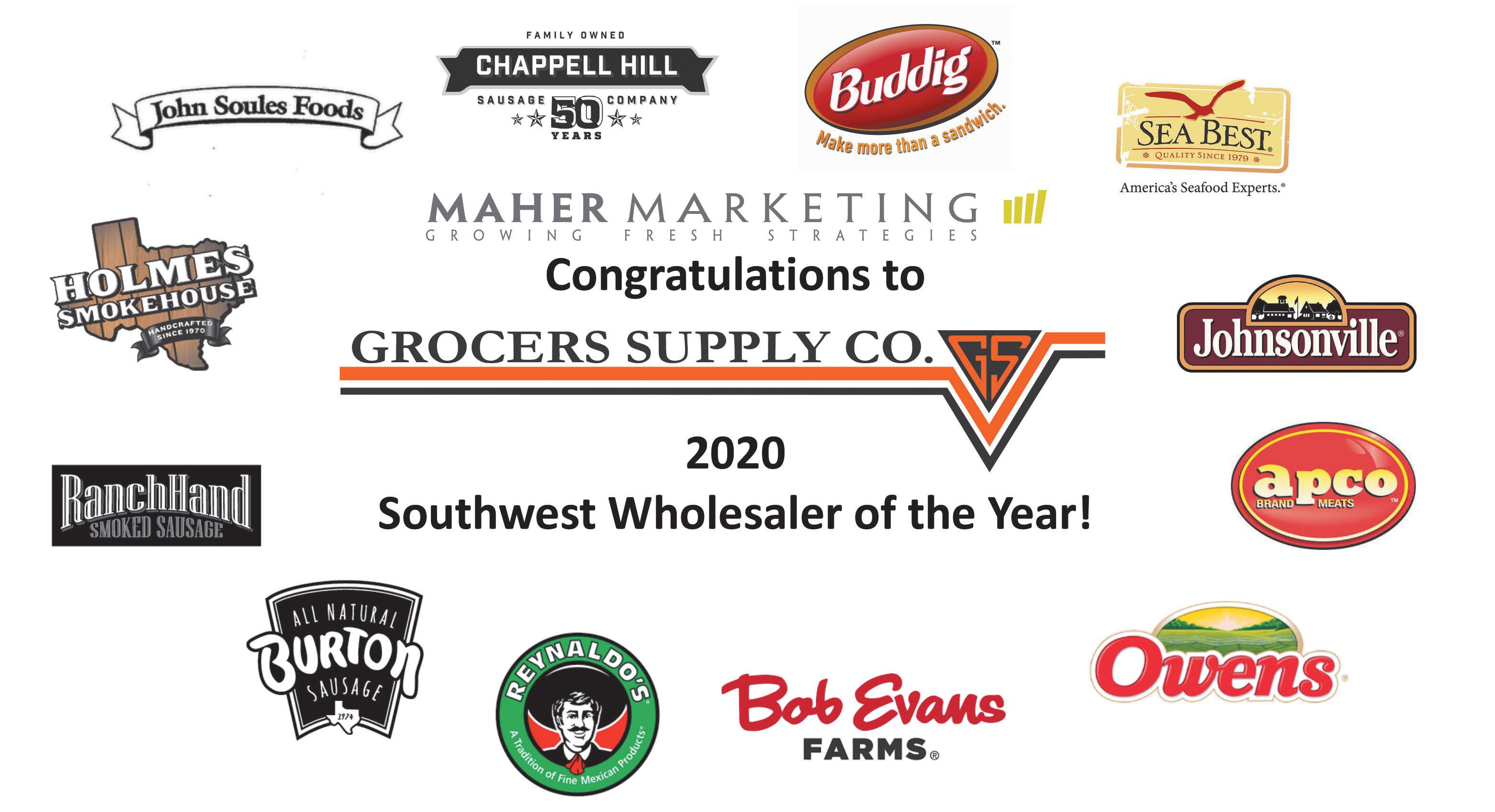
“Business has been up since last year. We just go day by day,” Garcia said.
And after 34 years of service with Junior’s, Garcia still enjoys working long hours. He comes Please see page 28
Junior’s in Alton, Texas
HOMETOWN HEROES
From page 27

to work early each morning and puts in 50 to 60 hours per week. He especially enjoys helping customers. Garcia’s office is in Junior’s corporate headquarters, but he tries to visit each store two or three times a week.
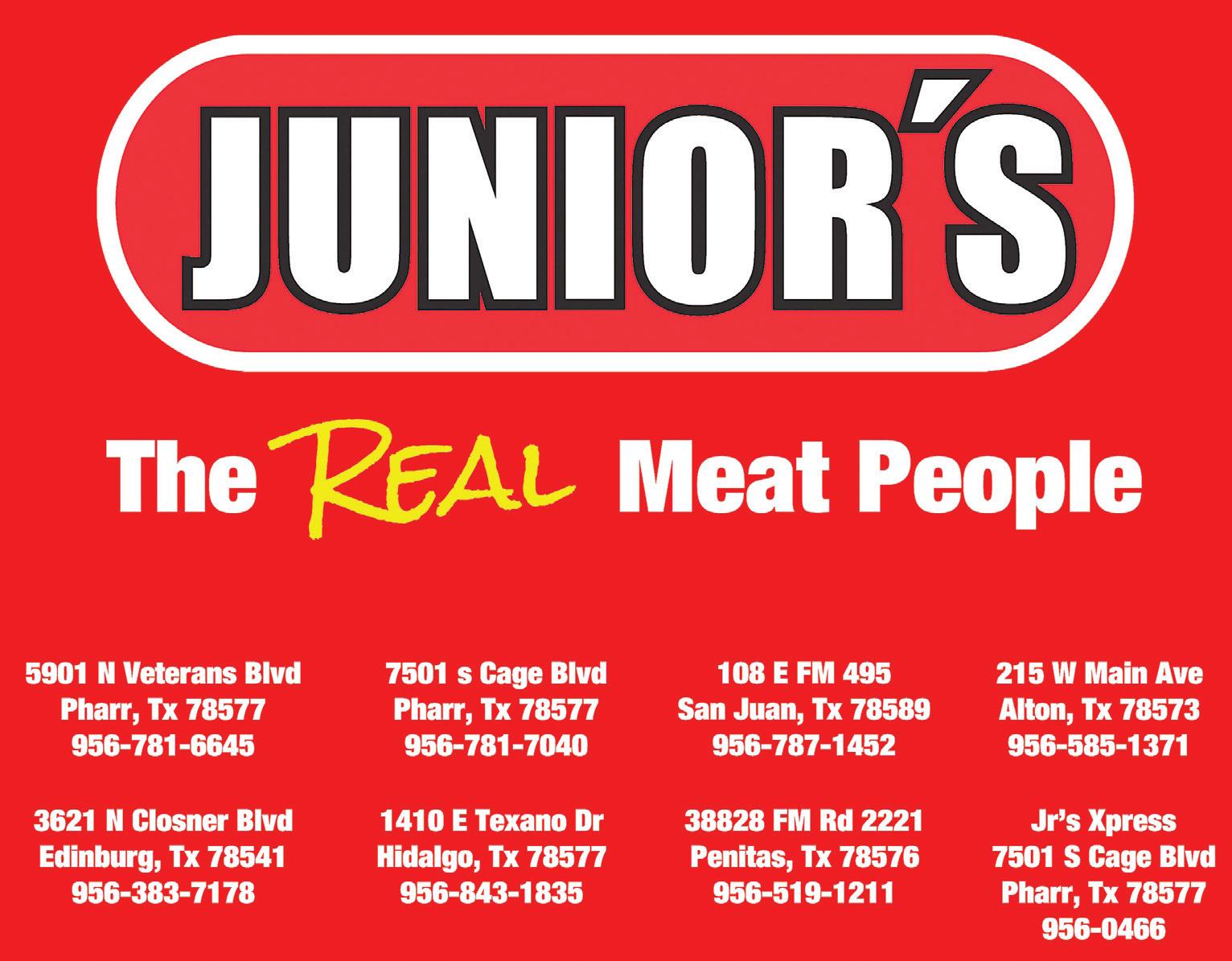
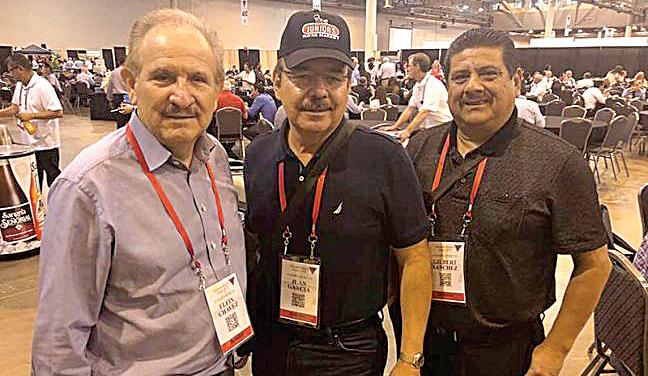
“Sometimes I jokingly say that I work 24/7,” he said. “Independents have survived in this economy, and we are doing really well. We try to keep up with the trends.”
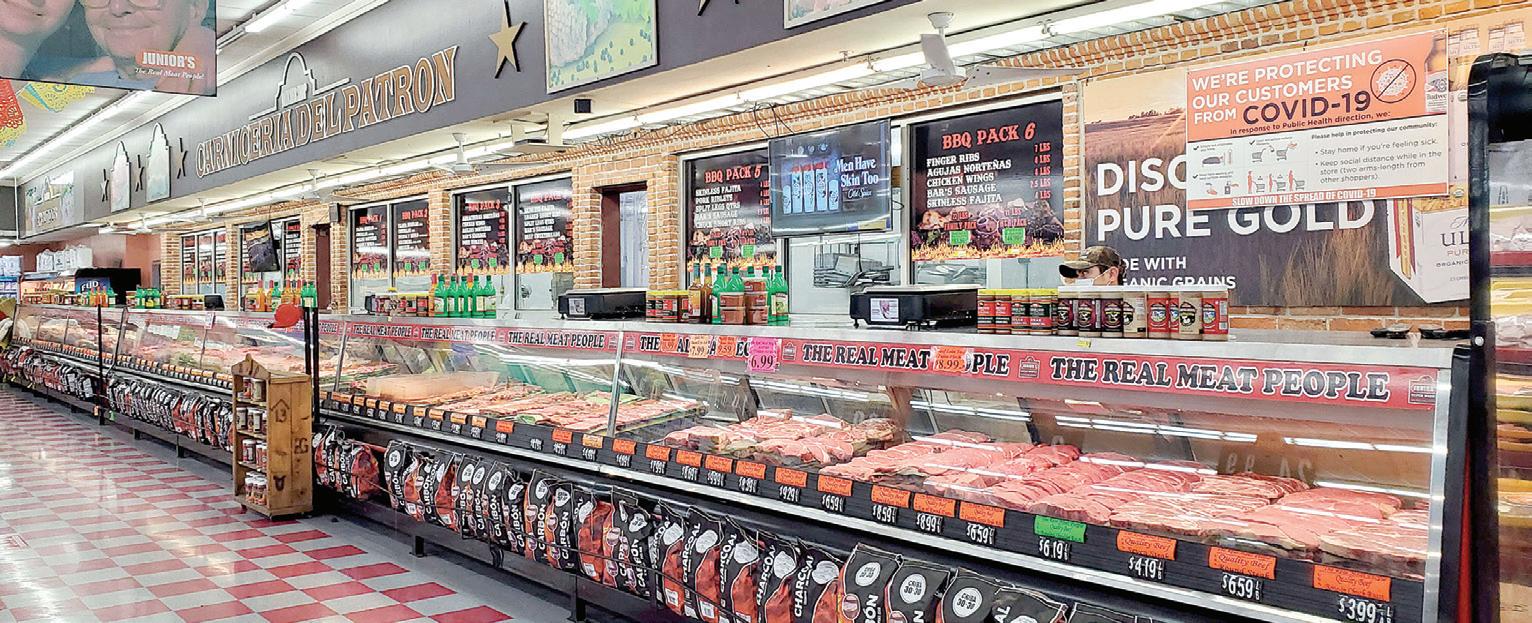
DECEMBER 2020 • THE SHELBY REPORT OF THE SOUTHWEST 28
Junior’s Felix Chavez, Juan Garcia and Gilbert Sanchez
Malone’s Cost Plus multicultural, full-service Boasts ‘generational’ roots in area, can adapt quickly
by Mary Margaret Stewart / staff writer
Rhonda Davis describes Malone’s Cost Plus in Dallas, Texas, as “generational,” both in its associates and customer base.
Malone’s has been in the Dallas area since 1973. The store adopted the Cost Plus concept in ’81. Today, there are three store locations, serving as a multicultural, full-service supermarket.



Davis handles government affairs for the company. She said Malone’s hires the local community, which is made up of a large Hispanic population. And the stores have catered to their neighborhoods through buying locally as well as helping Grocers Supply to develop its Hispanic department.
“We have elote carts out front, which is the Hispanic corn. All of our signs and our ads are in English and Spanish to cater to all of our community, not just the Hispanics,” Davis said.
“We’re neighborhood – we’ve been here for two to three generations. Our employees are mostly local high school kids and their parents and grandparents.
“We’re more able to adapt to our community than a regular Kroger or Walmart or anything like that.”
And being quick to adapt has proven essential in 2020, with the unprecedented coronavirus pandemic.
“We immediately needed to protect customers, as well as our own employees, so we got our maintenance department to put up shields at the check stands, and the registers have washable skins… for the credit card machines, so the cashiers are able to wipe it down, before and after,” Davis said.
“Whenever [shoppers] come in, the buggies are clean. And whenever they leave, everything is wiped down before they touch the credit card machine or the check stand or anything like that. We do our best to protect the customer and the employees.”

One aspect of the business that has been difficult to navigate is the supply chain.
“Supply has been kind of spotty. We’re lucky that we have Grocers Supply. They’ve helped us as much as they could, because it’s also
spotty for them. And they did a good job allotting,” Davis said.
“If they had something in their warehouse, and we needed it, they would send us something rather than nothing. We may not have gotten what we ordered – if we need a 10 of them, we may have only got five. That was a challenge to keep the shelves fully stocked. But it’s looking a lot better right now.”
None of that has stopped the daily service that Malone’s stores provide to the neighborhoods they serve. And it won’t stop now, according to Davis.
“We are going to do the same thing that we’ve always done. We’re going to give a fair price for quality product. And if the future holds a new location, that’s certainly an option,” she said.
And this service extends beyond the four walls of a Malone’s Cost Plus. Community is important, too.
“We are members of several different chambers of commerce. We work with the local high schools as employees,” Davis said.
“And some of our employees have gone all the way through college and become teachers and lawyers. And we sponsor local, community events, churches and libraries – different things like that.
“We’re very involved in the growth of the community. The Hispanic culture itself is very family-oriented. With the Cost Plus concept, when they buy their groceries, the Hispanic community understands that the more they buy, the more they save.”
 Malone’s Jesse Salazar
Malone’s Jesse Salazar
HOMETOWN HEROES HOMETOWN HEROES
Poco Loco combines ‘tradition, family, fun, festivity, freshness’
Shoppers also drawn by variety of unique products, services
by Mary Margaret Stewart / staff writer
Evolving from a convenience store format, Poco Loco opened its first grocery store in 2009 in Kyle, Texas. In the ensuing 11 years, Poco Loco has expanded to nine stores in Austin, San Marcos, Buda, Uhland and Dale, Texas.
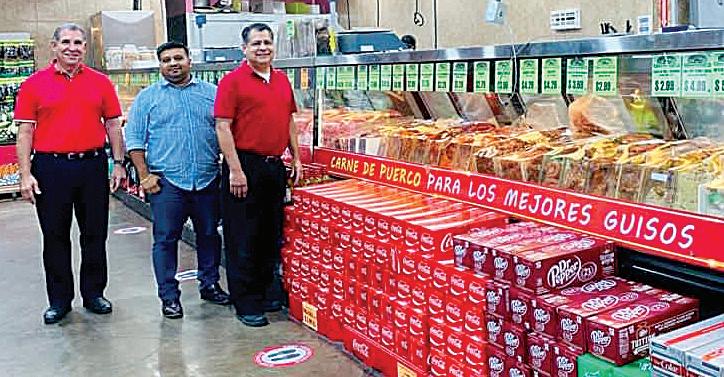
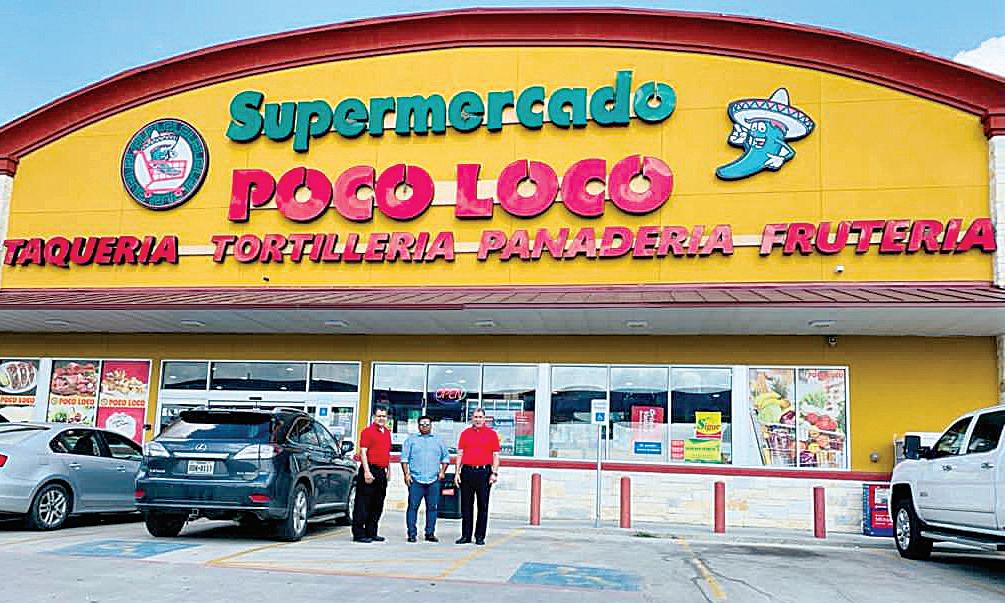
And for someone who’s never shopped a Poco Loco, CEO Mike Momin said the environment in the store is “one of tradition, family, fun, festivity, freshness and cleanliness.”
“We feature a carnicería, a scratch bake bakery, kitchen and produce department,” he added. “We have a diverse workforce that represents our customer base and meets the needs of all our customers, while providing great customer service.
who the Hispanic shopper is and the diversification of the Hispanic shopper, while catering to their unique needs,” he said. “We must provide the Hispanic shopper a place where they can shop and feel that their voices of what they request are heard and met, and their cooking tradition carries on.
“We also, as first responders, provide the residents of Texas a safe environment to shop in. While we are currently specializing in servicing the Hispanic customer, our customer service goal does not stop there.
“We also want to become a role model for the smaller chains on how to effectively compete, regardless of size, with other grocery retailers, emphasizing and understanding who we are and who we serve.”
initiatives at Thanksgiving.
“We participate in an event called Paveton,” Momin said. “Poco Loco donates approximately one-half the cost of the turkeys to be given away to residents in need in these communities.”
As for the future, Momin said part of his role as CEO is to provide direction and leadership to put initiatives in place for growth and success. And he is paving the way for just that to happen for Poco Loco.
not only in the Hispanic market, but also diversifying our growth into the destination shop for all customers.”
“Poco Loco offers a unique shopping experience to our customers. We offer a variety of unique products and services that our customer base identifies with. We focus on fresh/quality product at a value to our customers.”
Poco Loco caters to the Hispanic population in Texas, which Momin said is “diverse within itself.”
“Our customer base reflects a first- and second-generation Mexican shopper,” he said. “In addition, other Hispanic cultures we cater to are from Central America, South America, Cuba and Puerto Rico.
“The products we carry in each store specifically reflect the demographics in close proximity. We utilize Facebook to advertise our store/events and weekly ads. Word of mouth within the Hispanic culture plays an integral part in our advertising of the Poco Loco brand name.”
And Poco Loco is more than just a grocery store. Momin said the stores’ role in the communities they serve represents something larger than that.
“Our role in Texas is to educate ourselves on
Yet, as a smaller operator, some of the challenges that Poco Loco has encountered during the COVID-19 pandemic were being a true competitor with the larger grocery chains, according to Momin.
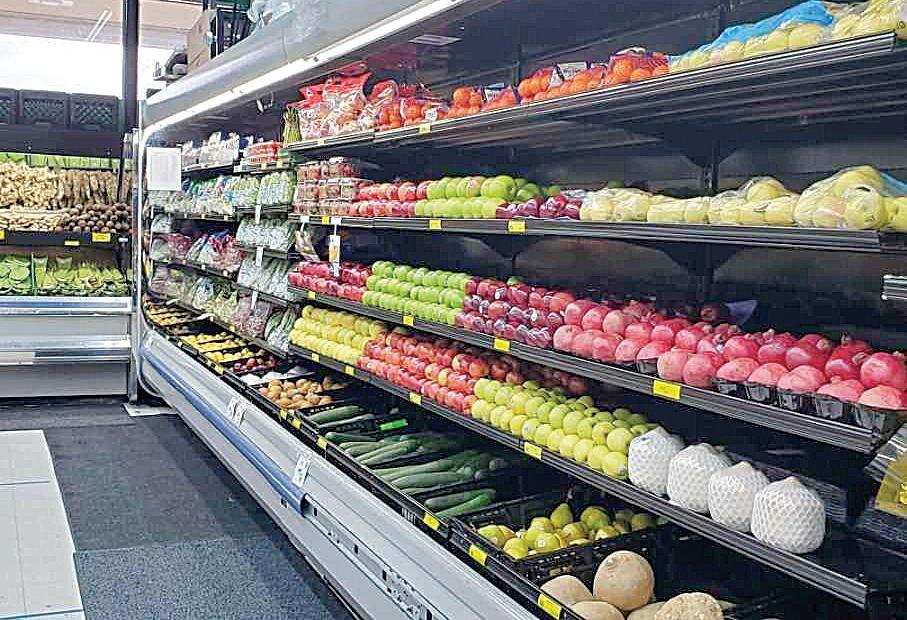
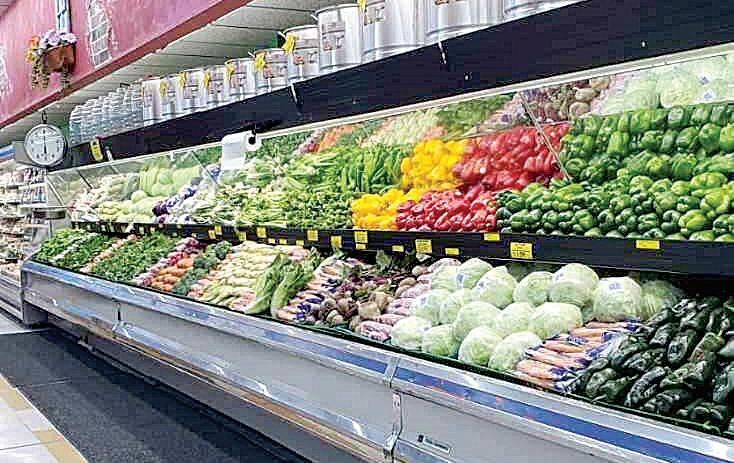
“We had to overcome our exposure of name recognition and establishing customer loyalty from a new base of shoppers who were not familiar with Poco Loco,” he said.
“The change that has resulted because of COVID-19 is that we have gained a more diverse customer base, in addition to the Hispanic shopper. We have reviewed our current plan-ograms and have made adjustments, based on demographics, by introducing new products to Poco Loco, to meet the needs of the new customers we have acquired.
“We now also have a warehouse facility that we can utilize to store key/fast-moving items to help with improving in stock conditions on these demanding and faster-moving items.”
And with the holidays arriving, Poco Loco headed up one of its major community involvement
“Our focus over the next five to 10 years is to aggressively expand the number of stores Poco Loco has from its current count of nine to 25,” he said. “We expect to be a player of significance
DECEMBER 2020 • THE SHELBY REPORT OF THE SOUTHWEST 30
Roy Perez (from left), Poco Loco supervisor; Jason Momin, owner of Poco Loco; and Hector Garcia, Grocers Supply retail sales counselor
Hector Garcia (from left), GSC; Jason Momin, owner of Poco Loco; and Roy Perez, Poco Loco supervisor




 by Mary Margaret Stewart / staff writer
by Mary Margaret Stewart / staff writer























































 Malone’s Jesse Salazar
Malone’s Jesse Salazar



